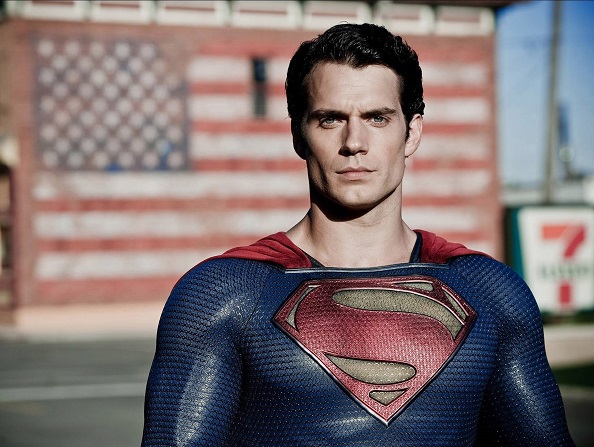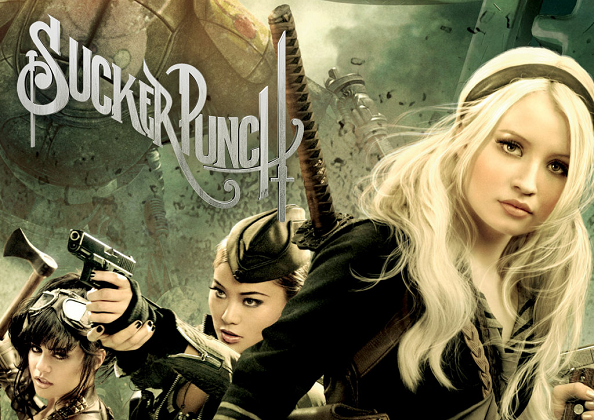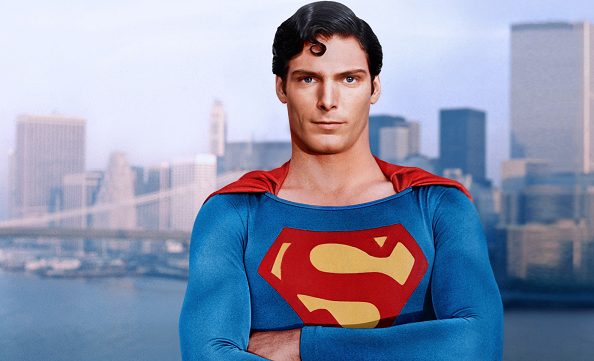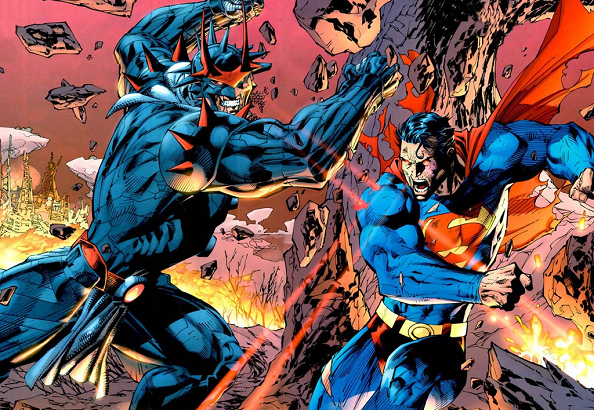
Opening weekend is over, the reviews have been written, and the results are in. While Man of Steel did amazing at the box office, the majority of critics feel that the film was a failure. As of today (June 18, 2013), Rotten Tomatoes has reported that only 56% of critics had positive things to say, yet 82% of audiences enjoyed the film. If so many are enjoying this film then why are there so many bad reviews?
I decided to spend a lot of time this weekend reading review after review in an attempt to discover what I may be missing. I began to wonder if my love of comic books (and anything with Chris Nolan’s name on it…haha) had dictated my review of the film, but after reading more reviews and even some user comments (yes we read them), I began to notice some common similarities among the bad reviews that needed to be addressed.
1. The hatred of Zack Snyder
The first thing I noticed among many reviews was a bias in regards to Zack Snyder as Director. While many critics had the decency to keep their opinions of him unvoiced, there were actually some that were outspoken enough to publicly admit their bias. Quotes such as “Oh Superman, what did you do to deserve Zack Snyder” from Jeffrey Westhoff of The Northwest Herald and “The movie isn’t dead on arrival, like Snyder’s over-reverent Watchmen. But it’s pleasure-free.” from David Edelstein of The New York Herald show the apparent preemptive bias from critics such as these. Zack Snyder does have a certain style that can be very generic and can sometimes be responsible for some horrible films (Sucker Punch), but the guy isn’t Uwe Boll. There are many others that make up a film’s success besides the director and to make a judgement on just one member going into a film is just unfair. The film never had a chance with these critics because of Snyder being attached to the film.

2. The comparison to Richard Donner’s films/Christopher Reeve
Richard Donner redefined Superman with his films (not his 3rd and 4th) and his casting of Christopher Reeve put a face to the character. Even though he seemed to have set a standard, his films are still adaptations of the original inception of Superman. Many people seem to forget about Superman before Donner’s version and use his films and Christopher Reeve’s portrayal as comparison even though it is not the original. Superman Returns attempted to emulate Donner’s concept and while it surprisingly was well received by critics, it carried a poor public perception and less than expected box office numbers. Many reviews negatively criticize Man of Steel in comparison to the Donner films, in a way that criticizes any venture away from the original films. Man of Steel, just like Donner’s Superman, is an original adaptation and should be treated as such.

3. The action is too large
Another common complaint among critics is in reference to the size and amount of action in the film. The problem most have is that it is too massive and there is too much CGI. There have been comparisons to Michael Bay’s Transformers in regards to the “special fx extravaganza” and many think the abundance of this type of action is just lazy. My question is how else can Superman be represented without massive action? How can he “be faster than a speeding bullet” and be able to “leap tall buildings in a single bound” and that not be shown on screen? Superman is at the pinnacle of superhero power levels, he’s the big guns. His villains are equally as massive so when they collide, they’re going to make a bang. Sure the CGI could have been toned down some if the battles took place only in Smallville where nothing is around, but if an epic battle to save the world is taking place in a huge city, there’s no way to capture the amount of destruction without some digital enhancement. CGI for Batman type battles would be excessive but for Superman, it’s a necessity to the film.

I admit that I am guilty of letting my own bias towards things sway my opinions at times, but there was so much apparent bias in the majority of reviews for this film that something had to be said. I didn’t write this out of anger due to disagreement, I wrote this because I think the hesitant moviegoers need to know what is being pointed out as flaws in Man of Steel and still know that they can enjoy the film. If anyone disagrees with me, that’s fine, but IN MY OPINION I think the elements that some critics focused on were not aspects of the film but instead personal preference.






As someone who thoroughly enjoyed “Man Of Steel”-moreso than even “BvS: DOJ”-I couldn’t agree more with your assessment, Ryan.
nice article brotha
“No soul”, Mr. Robert? I cried three times during this movie (maybe four or five, i lost track). The storyline had that much of an impact upon me, and i haven’t reacted that way to any movie before.
Yes it had a lot of CGI, but so much of the movie was spent fleshing out the characters that i have a hard time understanding how that wasn’t relevant. The decision to put most of the action at the end of the movie clearly shows what they prioritized first, which was defining character relationships in such a way that the conflicts would feel meaningful to those watching them.
In regards to characterization i honestly didn’t want Superman to continue to only exist in a place where he never has to make hard choices. By refusing to spread beyond the confines of the “perfect hero” interpretation, his relevance would continue to slip away to those of us who have to live in a world where we face moral dilemmas. Having to face hard choices makes him even more of a hero, the kind that we can strive to emulate in real life. Superman is a hero, but he represents a specific kind of hero in a moral arc that contains many others who would make different but equally valid choices, hence why so many like to compare Superman to Batman or Spider-Man.
I honestly believe Superman to be the kind of person who always takes a third moral option when it’s available, but “when it’s available” is the key point. In the absence of a way to imprison, dis-empower, or talk Zod down, Superman is not the kind of character to allow billions of people to die because he can’t bring himself to end Zod. As much as killing Zod feels unlike Superman, allowing Zod to kill billions of people feels more unlike him. A hero like Batman might make the more radical choice of refusing to kill Zod outside of an alternative due to Batman’s darkness, which is a valid choice if one is willing to accept its consequences, but Superman’s philosophy doesn’t allow for such needless harm to innocents. Superman always affirms life as much as possible. But if he needs to fight to do it he chooses to do so. May i also mention that ‘Superman II”s Superman also chose to kill Zod, albeit for flimsier reasons.
Regardless of whether or not the franchise evolves well or poorly beyond ‘Man of Steel’, i think this movie deserves respect for reinvigorating Superman in a way that allows him to operate in the difficult moral universe that we mortals also inhabit.
Ryan, I think what most people are trying to say about this movie is that it lacked any real soul. It was totally hollow, and the over-abundance of CGI completely killed any real connection most people have for Superman. The story line was very weak after a promising introduction to the origins of Superman, and left me shaking my head at how far Snyder allows the script to totally become a bland, unbelievable CGI-fest. People loved Superman because we could relate to him. The prior movies had feeling and emotions that moved people, but this “movie” had almost no real emotional connection..and that my friend is why so many disliked it. Most people don’t care who directed it, and going back and saying that we didn’t like it because of Snyder is ridiculous!
“No soul”, Mr. Robert? I cried three times during this movie (maybe four or five, i lost track). The storyline had that much of an impact upon me, and i haven’t reacted that way to any movie before.
Yes it had a lot of CGI, but so much of the movie was spent fleshing out the characters that i have a hard time understanding how that wasn’t relevant. The decision to put most of the action at the end of the movie clearly shows what they prioritized first, which was defining character relationships in such a way that the conflicts would feel meaningful to those watching them.
In regards to characterization i honestly didn’t want Superman to continue to only exist in a place where he never has to make hard choices. By refusing to spread beyond the confines of the “perfect hero” interpretation, his relevance would continue to slip away to those of us who have to live in a world where we face moral dilemmas. Having to face hard choices makes him even more of a hero, the kind that we can strive to emulate in real life. Superman is a hero, but he represents a specific kind of hero in a moral arc that contains many others who would make different but equally valid choices, hence why so many like to compare Superman to Batman or Spider-Man.
I honestly believe Superman to be the kind of person who always takes a third moral option when it’s available, but “when it’s available” is the key point. In the absence of a way to imprison, dis-empower, or talk Zod down, Superman is not the kind of character to allow billions of people to die because he can’t bring himself to end Zod. As much as killing Zod feels unlike Superman, allowing Zod to kill billions of people feels more unlike him. A hero like Batman might make the more radical choice of refusing to kill Zod outside of an alternative due to Batman’s darkness, which is a valid choice if one is willing to accept its consequences, but Superman’s philosophy doesn’t allow for such needless harm to innocents. Superman always affirms life as much as possible. But if he needs to fight to do it he chooses to do so. May i also mention that ‘Superman II”s Superman also chose to kill Zod, albeit for flimsier reasons.
Regardless of whether or not the franchise evolves well or poorly beyond ‘Man of Steel’, i think this movie deserves respect for reinvigorating Superman in a way that allows him to operate in the difficult moral universe that we mortals also inhabit.
You’ve said it all man! The movie is a blast in every way!